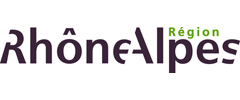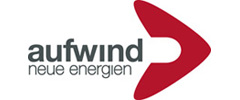EDCs and related public health concerns: Dutch Parliamentarians, policy makers and NGOs present at Policy Science Round Table in The Hague
WECF and Wemos organised discussion in press centre Dutch Parliament
11.06.2014 |WECF

Dutch Parliamentarians, policy makers and representatives from NGOs present at the Policy and Science Round Table in Nieuwspoort
In the past months several reports have been published that outline the possible dangers of EDC’s. For example, the World Health Organisation (WHO) and the United Nations Environment Programme (UNEP) published a worrying report about the impact of chemical substances on our endocrine systems, listing trends such as increasing infertility and incidence of breast cancer as possible outcomes. Goals of this discussion included informing journalists and politicians about the scientific research on EDC’s and the risks they pose to children, babies, fertility and wildlife. Moreover, the EU policies concerning EDC’s will be discussed in comparison to measures that have been taken by other European countries.
Report of the Policy Round Table
The full report of the Policy Round Table has been published on WECFs Dutch language website. Speakers were Professor Skakkebaek (Copenhagen University Hospital): on the ‘International state of science sperm quality’, Professor Juliette Legler (VU University Amsterdam): ‘EDC’s – Children and obesity’, Majorie van Duursen (Utrecht University): Prenatal exposure, Institute for Risk Assessment Sciences, Gavin ten Tusscher (West-Fries Gasthuis Hospital): ‘Risks and measures for babies’ and Lisette van Vliet (HEAL): ‘EU policy and EU country examples of precautionary measures’. Multiple questions on the effects of EDCs on public health were asked by MEPs Agnes Wolbert (Social-democrats) and Henk van Gerven (Socialist Party).
Research has shown that EDC’s are playing a role in the increasing incidence of breast cancer, testicular cancer and infertility in the EU. This makes this topic particularly worrying and important for public health.
WECFs contribution to the event was supported by the LIFE+ program of the European Commission, DG Environment

Related News
WECF co-organising partner Green Pharmacy Conference 2017
The environmental cycle of medicines - an incentive for innovation in the human and veterinary medicine chain
21.09.2017
Recycling contaminates plastic children’s toys with toxic chemicals from electronic waste
A new global survey finds that recycling plastics containing toxic flame retardant chemicals found in electronic waste results in contamination of the world’s best-selling toy: The Rubik’s Cube.
20.04.2017
One step towards a safer blood bag
WECF speaker at final Seminar of the LIFE+ project PVC Free Blood Bag, 27-28 September, in Östersund, Sweden
11.10.2016
WECF sends letter to Dutch Secretary of State concerning EU policy on EDCs
In a joint statement WECF and the EDC Free Coalition ask Dutch State Secretary Dijksma to insist on major changes at the Environmental Council meeting to protect our health and environment.
21.06.2016
Commission's EDC criteria proposal: More humans will have to be harmed before action is taken
The European Commission presented today its proposal for criteria to identify endocrine disrupting chemicals (EDCs). WECF and the EDCfree Coalition condemn strongly the decision.
15.06.2016





































